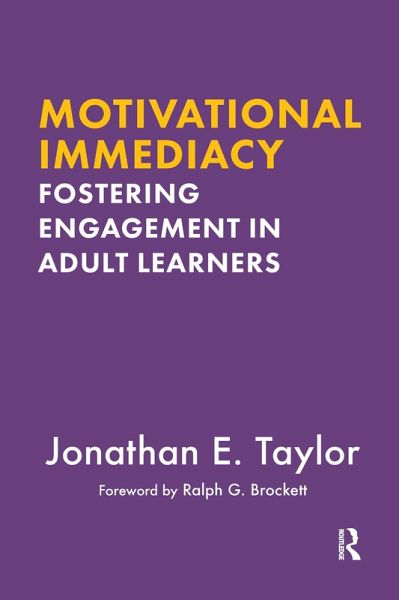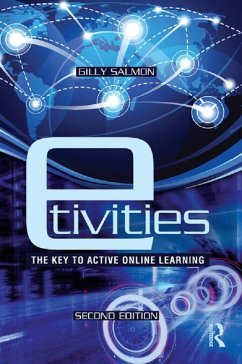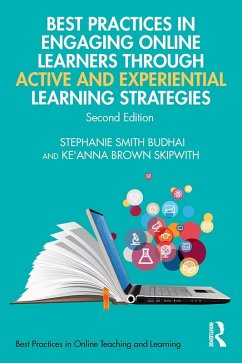
Motivational Immediacy (eBook, PDF)
Fostering Engagement in Adult Learners
Versandkostenfrei!
Sofort per Download lieferbar
32,95 €
inkl. MwSt.
Weitere Ausgaben:

PAYBACK Punkte
16 °P sammeln!
This book provides a fresh look at the question of learner motivation and engagement, beginning with an investigation of potential motivations not to learn, the better to help instructors find more successful ways to engage learners in any given situation. After examining various kinds of resistance to learning, the book goes on to describe effective ways of overcoming resistance and engaging learners.Grounded in the literature of many fields, such as Adult Education, Psychology, Sociology, Cultural Anthropology, and Communication (as well as the author's own decades of experience), the book c...
This book provides a fresh look at the question of learner motivation and engagement, beginning with an investigation of potential motivations not to learn, the better to help instructors find more successful ways to engage learners in any given situation. After examining various kinds of resistance to learning, the book goes on to describe effective ways of overcoming resistance and engaging learners.Grounded in the literature of many fields, such as Adult Education, Psychology, Sociology, Cultural Anthropology, and Communication (as well as the author's own decades of experience), the book connects the concepts surrounding learning resistance directly to engagement and human motivation, drawing these ideas together to make the case for practicing motivational immediacy in all learning spaces. The second section of the book focuses on the various tools effective teachers might use to mitigate learner resistance and foster authentic and lasting engagement. The author devotes a chapter to using curriculum and Instructional Systems Design (ISD) processes to effectively foster engaged learning in different learning spaces and contexts. Two chapters are devoted to applying the theory and methods to specific domains: online learning environments, and face-to-face classrooms with both undergraduate and graduate students. The last section includes a chapter that provides a potential method to measure effectual learning in the classroom, and one that addresses the ethical issues sometimes said to exist in efforts to mitigate learner resistance and foster engagement in its place. The final chapter draws the book to a close by presenting a fluid whole that will greatly improve understanding of the ideas as well as the methods best used to reduce learning resistance, increase learner engagement, and facilitate motivational immediacy and effectual learning.
Dieser Download kann aus rechtlichen Gründen nur mit Rechnungsadresse in A, B, BG, CY, CZ, D, DK, EW, E, FIN, F, GR, HR, H, IRL, I, LT, L, LR, M, NL, PL, P, R, S, SLO, SK ausgeliefert werden.













